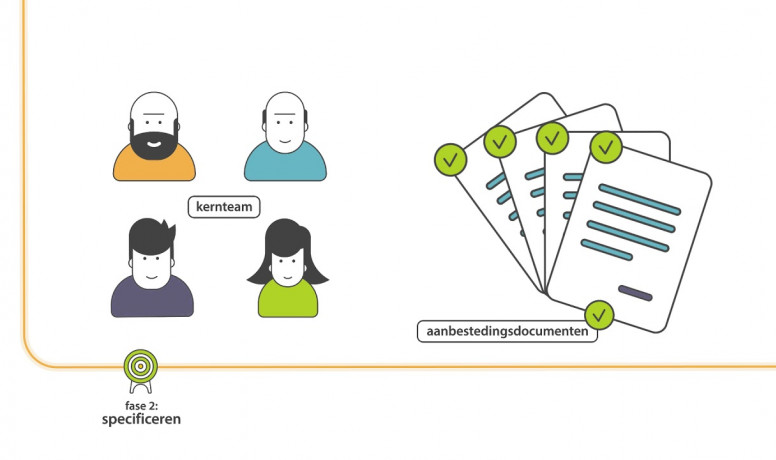Procurement & contracting
European tendering
What is European tendering?
In this procedure, SURF announces via a European portal that we wish to procure a particular service on behalf of the institutions. All interested suppliers can submit a tender. Together with the core team, we decide who the winner will be on the basis of predetermined assessment criteria. With a European tender, you never know in advance who the supplier will be.
When can you use a European tender?
If the expected contract value for your institution for the contract period is €221,000 (excluding VAT) or more, you are obliged to use European tendering. If the expected order value for this period is between the multiple threshold and €221,000, it is also interesting to participate in a joint SURF European tendering procedure. This amounts are valid until the 31st of December, 2025. After this period, they are subject to change.
Advantages of tendering via SURF
Jointly tendering out ict contracts gives you a number of advantages as an institution:
- Due to the large volume, we realise good (price) conditions;
- Sharing knowledge, experience and capacity results in an optimum contract;
- Joint tendering saves you the costs of your own procurement process;
- You can leave most of the contract management to SURF.
Tendering via SURF
The procurement process
The procurement process for ict contracts is divided into four phases, these are spread over the period between the start-up and actual execution of a tender. Watch the animated explanation or read the explanation of the phases below.
The procurement process at SURF
In this phase, the needs of institutions are identified. Institutions using an expiring contract receive a commitment poll to gauge their need for a new tender. If sufficient commitment is given, institutions not using the expiring contract will receive an interest survey. We outline the requirements and draw up the preconditions for this tender. After this, the procurement strategy is determined. We also take stock of which institutions intend to participate.
With a number of potentially participating institutions, we put together a core team, with them we specify the exact requirements. The tender documents are the main end products of this phase. This completes all the pieces for an actual tender.
After the specification phase, the selection phase for a market party begins and with it the formal tendering process. The phase follows a number of fixed steps where we publish the tender on TenderNed and market parties can ask questions about the tender (information note). This phase also sees the receipt of bids from market parties, which are assessed by the core team.
After selecting a market party and awarding the contract, contracting takes place. We start the preparatory work so that orders can be placed. The tender is completed and SURF's role changes to monitoring the agreement, known as contract management. For some of these procurement processes, the final award takes place via a procedure for concluding further orders under the framework agreement (a mini-competition). These mini-competitions are usually carried out by institutions themselves - without further support from SURF. What scope under procurement law do educational institutions have when carrying out these mini-competitions?
Institutions that indicate in phase 1 that they wish to participate in the tender will be kept informed of progress and developments throughout the process. At the end of phase 2, when all documents for the procurement are ready, you will decide whether you actually want to participate in the procurement.
Procurement calendar
The procurement calendar on My SURF (behind login) gives an overview of all current and future tenders. This enables you to decide in advance which tenders are of interest to your institution.

